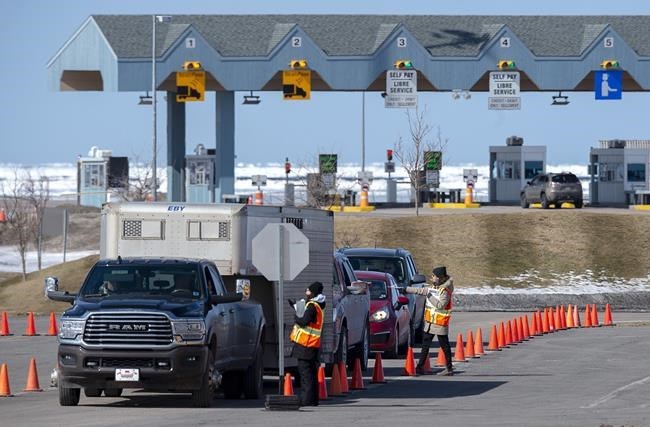HALIFAX — The four Atlantic provinces have announced plans to ease interprovincial travel restrictions, creating a so-called "bubble" as the region has reported relatively few new COVID-19 infections in recent weeks.
As of July 3, residents of Atlantic Canada will be allowed to travel within the region without having to self-isolate for two weeks when arriving in another province.
Visitors from provinces and territories outside the region will still be required to self-isolate for 14 days and adhere to local entry requirements. However, once the self-isolation period has passed, those visitors will also be allowed to travel within the Atlantic region.
Newfoundland and Labrador Premier Dwight Ball said the decision to ease restrictions was not taken lightly.
"As this Atlantic bubble opens, it will be closely monitored as we remain committed to working together to support economic and social recovery while ensuring public health and safety," said Ball.
The province's chief medical officer of health, Dr. Janice Fitzgerald, confirmed the province would move to the next phase of its recovery plan on Thursday.
Under the new rules in Newfoundland and Labrador, outdoor public gatherings of up to 50 people will be allowed, while a range of recreational facilities will reopen, including gyms and arenas. As well, bars and indoor entertainment facilities, like cinemas and bingo halls, will reopen at a reduced capacity.
Ball said if all goes well, travellers from other parts of Canada could be allowed to enter Atlantic Canada around July 17.
"Now this can only be possible if we get favourable results in the days and weeks leading into July 17," he said. "We will never hesitate to go back if we have to."
Nova Scotia Premier Stephen McNeil said his province had worked hard to "flatten the curve."
"This will allow families to travel and vacation this summer, boosting our tourism and business sectors," McNeil said in a statement.
"We're looking forward to welcoming our neighbours back."
Each of the four Atlantic provinces will choose its own process for tracking and monitoring travellers.
The relaxed rules come as Nova Scotia — the most populous province in the region — announced Wednesday it had not recorded a new case of the viral infection in the past 15 days, and had no active cases. The province had 1,061 total confirmed cases, including 63 deaths — 53 of them at a single long-term care facility in Halifax.
In Newfoundland and Labrador, where there were 261 confirmed cases and three deaths, the most recent case of COVID-19 was recorded on May 28. Like Nova Scotia, the province had no active cases as of Wednesday.
New Brunswick reported one new case in the Moncton region on Tuesday, but that person was in self-isolation before the diagnosis and has had no close contacts. The province has 20 active cases. Of the 165 people with confirmed infections, two have died and 143 have recovered. No new cases were reported Wednesday.
"Increased movement in the region is an acceptable risk at this time," said Dr. Jennifer Russell, New Brunswick's chief medical officer of health.
Prince Edward Island had just 27 cases of COVID-19 and all have recovered. The Island last reported a case on April 28.
This report by The Canadian Press was first published June 24, 2020.
The Canadian Press
Note to readers: This is a corrected story. A previous version gave an incorrect day of the week for the announcements from New Brunswick and Nova Scotia.




